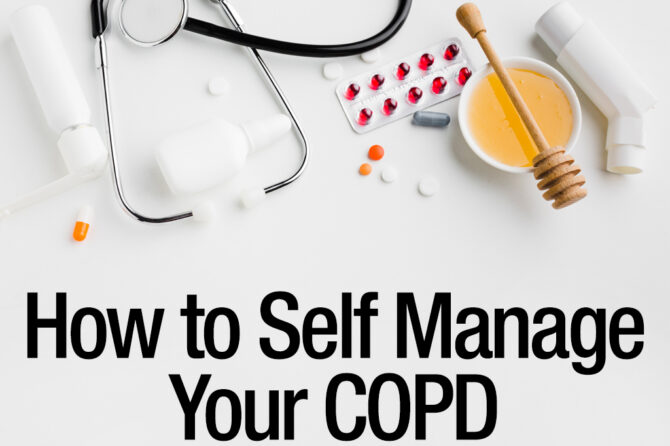
Chronic obstructive pulmonary disease (COPD) is a progressive respiratory condition that makes it difficult to breathe. It is often caused by smoking, but can also be caused by exposure to environmental pollutants and genetics. While there is no cure for COPD, it can be managed through proper treatment and self-care.
Self-management is an important part of living with COPD. It involves taking control of your condition and taking steps to prevent exacerbations (worsening of symptoms) and manage symptoms. Here are some tips for self-managing your COPD:
- Follow your treatment plan: It is important to follow your treatment plan as prescribed by your doctor. This may include taking daily medications, using a inhaler or nebulizer as needed, and practicing breathing techniques.
- Know your triggers: Identifying and avoiding triggers that can worsen your COPD is key to managing your condition. Common triggers include tobacco smoke, pollution, and respiratory infections.
- Keep a symptom diary: Keeping track of your symptoms and triggers can help you and your doctor better understand how to manage your COPD. A symptom diary can help you identify patterns and make adjustments to your treatment plan as needed.
- Use your inhaler correctly: Proper inhaler technique is important to ensure that you are getting the most out of your medication. Ask your doctor or pharmacist to show you the correct technique or refer you to a video online.
- Get vaccinated: Getting vaccinated can help protect you from respiratory infections, which can trigger COPD exacerbations.
- Practice good hygiene: Washing your hands frequently, covering your mouth and nose when you cough or sneeze, and avoiding close contact with sick people can help reduce your risk of respiratory infections.
- Stay active: Regular physical activity can help improve your breathing and overall health. Talk to your doctor about an appropriate exercise plan for you.
By following these tips, you can effectively self-manage your COPD and live a full, active life. If you have any questions or concerns about your COPD, don’t hesitate to speak with your doctor or healthcare provider.
***Disclaimer: This information is not designed to substitute a doctor’s advice, diagnosis, or treatment based on a patient’s individual circumstances. Patients must visit a health care practitioner for thorough information about their health, medical issues, and treatment options, including drug risks and benefits.***
Leave a reply

Leave a reply